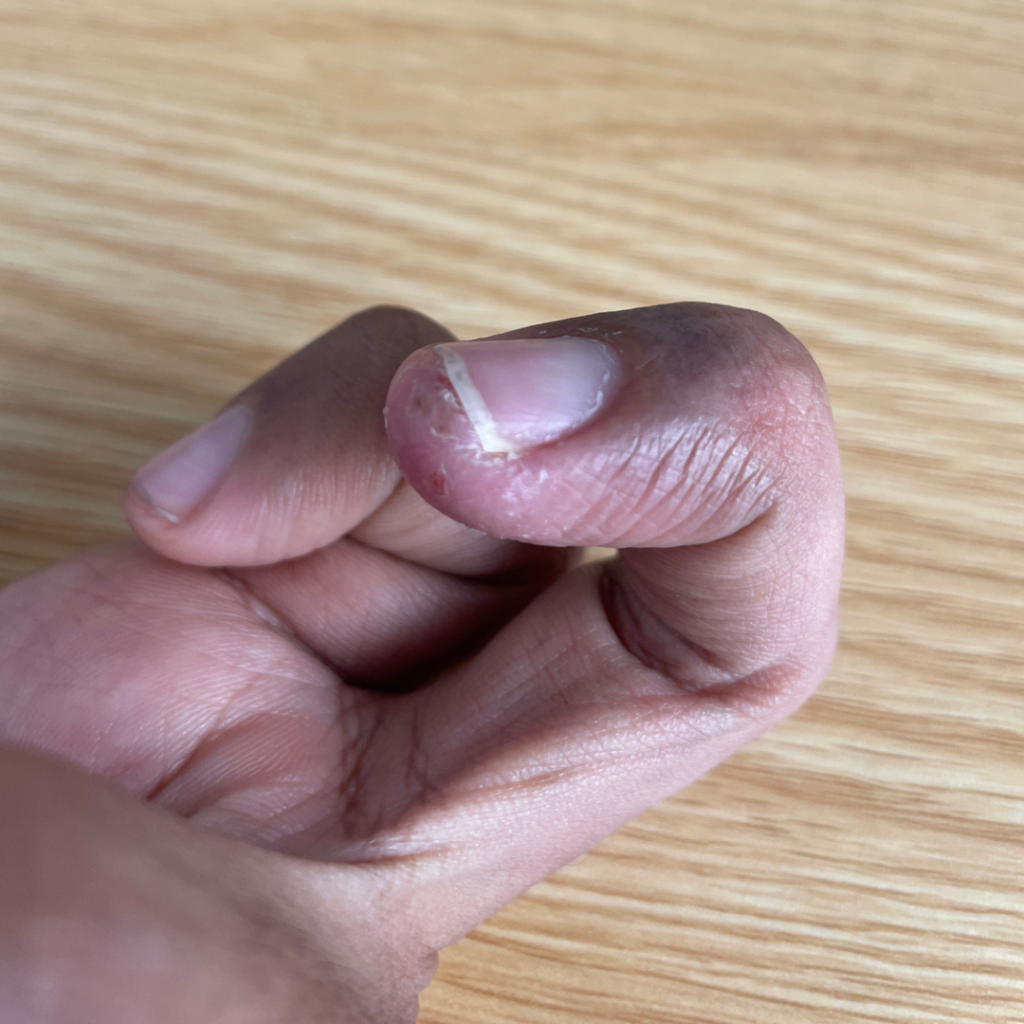
Eczema On Fingertips
Eczema On Fingers | Redness | Blisters | Eczema Causes | Treatment | Summary
Eczema On Fingertips
Facing eczema on your fingertips can be really bothersome and uncomfortable. It shows up as redness, itchiness, and sometimes painful cracks on the ends of your finger. This kind of eczema, also called hand eczema or dyshidrotic eczema, can make using your hands in daily activities tough.
Eczema on fingertips can happen because of different reasons. It can be genetic or it can even be allergic. The signs of eczema may vary based on severity. It can present as itchy, dry skin and progress to small blisters filled with liquid that can break and make your skin peel.
Read on to find out more about the symptoms of eczema on fingertips and how to treat it.
Fingertip Redness
When your fingertips turn red, it’s a sign that something might not be quite right. The skin at the tips of your fingers can turn red for different reasons. Sometimes it’s because of things like the weather getting colder or something you touched that caused your skin to react. In some cases, it can be eczema.
Eczema, or atopic dermatitis, is a chronic skin condition where the skin becomes red, itchy, and swollen. This happens because the body’s defense system reacts strongly to things that normally shouldn’t cause a big reaction, like allergens or irritants. This reaction makes blood vessels widen and the skin becomes red due to the increased blood flow and inflammation.

Small Blisters On Fingertips
If you have small blisters on your fingertips, it may be a sign of eczema in that specific area. Eczema typically makes your skin red and itchy but it can cause blisters as well. These blisters usually have clear liquid inside and can also make the skin around them red and swollen.
In serious cases, eczema can even make your skin “weep,” which means it releases clear fluid and makes things even more uncomfortable.
Eczema On Fingertips Causes
If you have eczema on your fingertips, understanding the reasons behind it can help you manage it better. Sometimes, traits passed down through your family can increase your chances of developing eczema. This is often the case with the atopic triad of which eczema is a part.
Additionally, factors in your surroundings, such as substances you might be allergic to or things that bother your skin, can also trigger or worsen eczema. If your hands are frequently used for tasks, and you come into contact with things like water or chemicals often, this can also increase the likelihood of getting eczema on your fingertips.
How To Treat Eczema On Fingertips
If you’re experiencing the discomfort of eczema on your fingertips, there are effective ways to find relief. The first important step is to make sure you keep your hands clean. Use mild, unscented cleansers and avoid using hot water, as it can make the symptoms worse. After washing, gently dry your hands and then apply a thick, gentle moisturizer that won’t cause allergies, to help keep the moisture in.
Stay away from things that might make your eczema worse, like strong soaps and detergents. If your eczema is really bad, it’s recommended you talk to a dermatologist. You can also try probiotics, which have been scientifically proven to reduce eczema symptoms.
Summary
Dealing with eczema on your fingertips can bring discomfort as you experience redness, itchiness, and potential pain, which can disrupt your daily activities. The symptoms of eczema may manifest in various ways, ranging from dryness to the presence of liquid-filled blisters.
If there’s a family history of eczema or exposure to allergens, these factors can worsen the condition. To manage eczema on your fingertips, it’s recommended that you gently wash your hands using mild soap, apply moisturizers that are non-allergenic, and steer clear of harsh soaps that could worsen your symptoms. If your eczema is severe, it’s advised that you consult a dermatologist for professional guidance.
References
National Eczema Association: Hand Eczema
National Eczema Association: Dyshidrotic Eczema
National Eczema Society: Hand Eczema
Medical News Today: Hand Eczema: Causes, Symptoms, and Treatments
DermNet New Zealand: Fingertip Dermatitis
